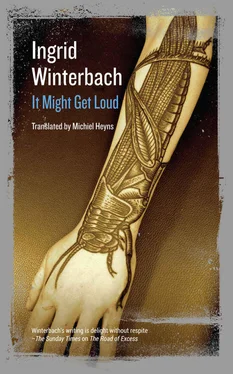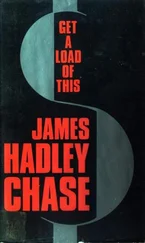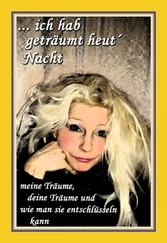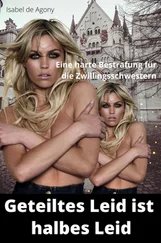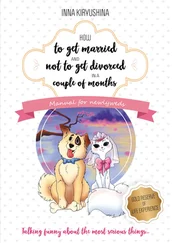Well, well, she thinks, for that she should probably be grateful — it took him like a long time to say something like that. She hopes that his assessment of his situation is reliable.
Slightly more reassured, she can now focus on the other reason for her visit to the town. She must get in touch with the man, Sofia’s partner, as soon as possible, however much she dreads the prospect.
THIS IS HOW MARIA VOLSCHENK remembers the morning sky — exactly like this. The glory of tumbling clouds. Every morning a different cloud formation; a swiftly changing spectacle. The colours predominantly rose-pink, ink-blue, old-gold. The clouds on the horizon are lit up from below by the rising sun. The mountains are in silhouette, fire-gold on the horizon, more rosily pink higher up. The upper parts of the clouds are blue — indigo, cuttlefish-blue. The visible bits of sky are shades of grey-blue. Some mornings the clouds are more dispersed; higher up in the sky. The outlines of the mountains still darkly delineated; the light on the horizon bright, the clouds glowing gold, dark at the core, higher up the clouds are lit up more rosily from below; wispy at times — dispersed over the whole expanse of the heavens. Everything, in whatever configuration, equally lovely, equally dramatic. She does not know the names of the various clouds. She never learnt them. She was always too busy. Busy making figures tally. Busy raising the child on goat’s milk. Busy not getting out of touch with the man. The light falls from a more acute angle. And a different aroma that starts ascending from the soil.
Something makes itself felt very tentatively, very hesitantly, when she walks in the garden of the guest house where she’s staying, in the botanical garden, on her rambles on the mountainside. Something manifested in her body as a sensation of emptiness. It felt like an ice-cold, hollow spot, it was a sensation akin to pain. It spread to all her organs. It settled in her head. She stood by the grave of her parents and she rattled like a hollow pod. She thought, she is now so hollow on the inside, the wind could surely whistle through her as if through a reed. Her emotional state she still finds unfathomable, but at least, she thinks, she knows what she needs to do.
It is suddenly much colder. End of May, and the first rains of winter start falling. She does not think it a good idea to visit her parents’ grave in the rain. The economist has left for a conference somewhere in Africa. She should have asked him to bring her back a memento. A stone or something. She misses his heft, she misses his heat. She misses the hard-to-describe mouth. It’s last days that she associates him with. Everything that is fated to extinction lends an urgency, an acrid edge to their togetherness.
His smell she finds different. Not unpleasantly different, just different from the boys, the young men, the uncles who formed part of her childhood and youth; different from the men with whom up to now she has had sexual congress. Also, this different smell claims her sexually. She associates it with snow, with rabbit fur. He also tastes different. Constantly she explores with her tongue the contours of his enigmatic upper lip. Under her tongue this lip feels resilient. Perhaps her tongue comprehends what her eyes cannot. The prominent upper lip, the deep lip furrow — how is she to describe them?
If she had to draw his mouth, she would stylise it, as they drew birds in flight as children — a single, stylised, curved line. The shoulder section of the wing she would draw closer than usual to the body, the wings would slope down steeply. That is how as a child she would have pictured the man’s Daisy Duck upper lip.
In the mornings she lies on her bed in the impersonal space of the guest house. At the moment she is grateful for this. She welcomes such a space in which nothing clings to her. She finds it a disburdened space.
*
She — at long last — makes an appointment to see Tobie Fouché, Sofie’s partner. Maria proposes that they should meet somewhere for coffee, she doesn’t want to meet him in his own space (it would place him at an advantage), and just at present she doesn’t feel up to the house where every single object reminds her of Sofie’s absence.
When she’s sitting across from him, she suddenly knows that this man is not going to bring her any closer to Sofie. If anything, he’s more likely to alienate her from the memory of her sister.
‘What was Sofie engaged in before her death?’ she asks.
‘Oh,’ he says, evasively, ‘the usual. She wrote quite a bit.’
‘Poems?’
‘Yes.’
‘Any completed volumes?’
He hesitates for a moment. ‘One,’ he says. ‘It was ready for publication when she died.’
‘So why wasn’t it published after her death?’ Maria asks.
‘Well,’ he says hesitantly, ‘there’s a reason for that.’
‘May I see these poems?’ she asks.
‘That is unfortunately impossible,’ he says. ‘The volume and all unfinished poems have been placed under a twenty-five-year embargo.’
‘ What ,’ she asks, shocked, ‘do you mean, by embargo?! Whose decision was that?’
‘It was Sofie’s wish,’ he says, and lowers his eyes coyly.
‘ What was Sofie’s wish?’ Maria asks.
‘It was always her wish that no unpublished work should be published after her death.’
‘And you’re going to permit it?’ Maria asks. ‘Surely you have some say in the matter?’
‘I have a say, but I’m going to respect her wish,’ he says.
‘You’re going to do it?’ she asks, incredulous.
‘Yes,’ he says, ‘I’m going to.’
‘I don’t believe it!’ she exclaims. (The other customers glance round at them with interest.) ‘I can understand that unfinished poems can be placed under embargo, but a volume that was ready for publication!’
He shrugs. Her face is glowing like a coal of fire with indignation.
‘It was Sofie’s wish,’ he says, ‘whether you want to believe it or not.’
‘I believe that it could have been Sofie’s wish, but that you can do it, that I can’t believe.’
He shrugs.
‘Tobie,’ she says (even his name she dislikes), ‘Sofie is dead. She will never know whether her wish is respected or not. She will never write again. Apart from the poems she left behind, there will never again in all eternity appear anything by her. You know that as well as I do. How can you get it past your damn conscience to deprive the world of her last poems?’
‘It was her wish,’ he persists.
‘Oh, crap , man,’ she says. Her hand trembles so, she can hardly hold her cup.
That it could have been Sofie’s wish, that she can believe. Extreme Sofie always was. Impulsive, reckless, insane even, at times. But that he can do such a thing, that passes her understanding. Tobie Fouché is a poet. Complacent hardly begins to describe him. Sensitive nature verse, tender urban poems, he is a panegyrist of elusive mountain paths and bashful waterfalls. Deeply felt poetic utterances, interminable odes to autumn, to winter; delicately nuanced emotions upon beholding shifting qualities of light. (Not exactly her taste in poetry, she always thought; how could Sofie attach herself to such a man?) He takes pride in his sensitive poetic regard; has always sported a certain poetic election like a halo round his head, as if the mantle of some great poet had descended upon his shoulders — whereas Sofie is a hundred, a thousand times the greater, the more forceful poet. Was . Sofie is dead. She will not write any more poems. She was a hundred times more fearless. More profound. Rawer, less precious.
Tobie’s cultivated, gentle radiance, the eternally ingratiating little fake-humble smile. The corduroy trousers and Viyella shirts, those Maria finds as pretentious as always — always in earth tones: green and brown, in organic cloth, hand-woven in some workers’ cooperative in the Langeberg or in India. She can hardly bring herself to look at his self-satisfied face. She’d forgotten how insubstantial he is. Sofie commented to her only once that Tobie was disembodied . After that she clammed shut and never again said anything about him.
Читать дальше
